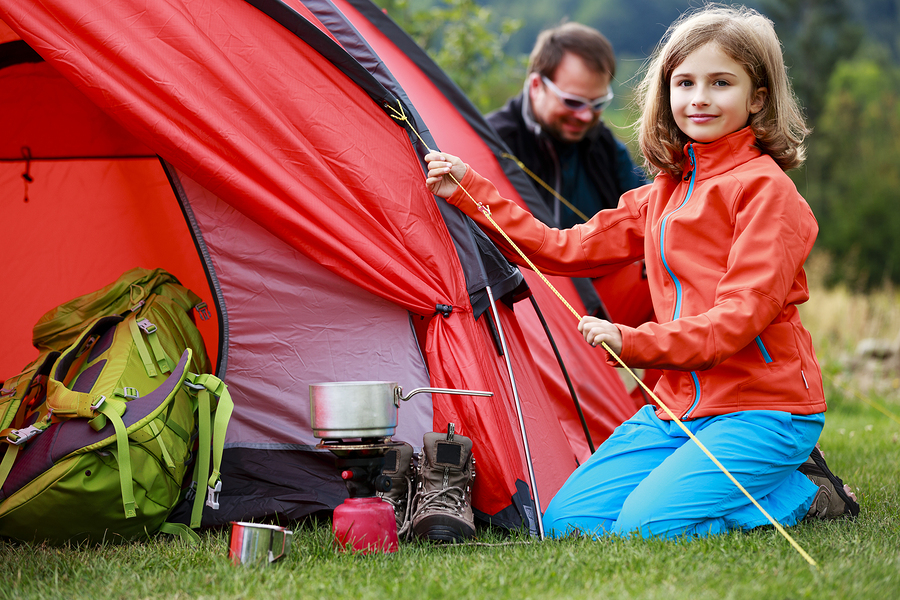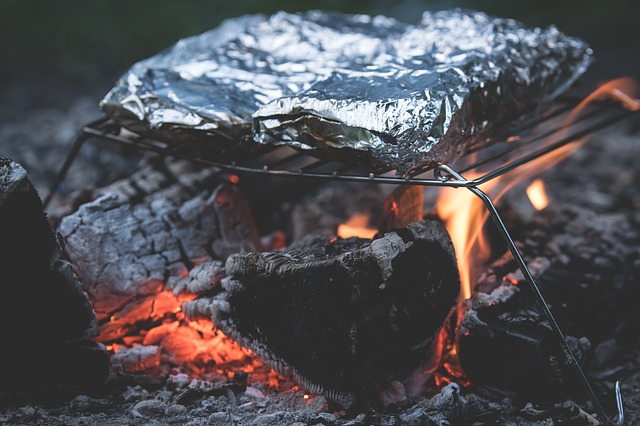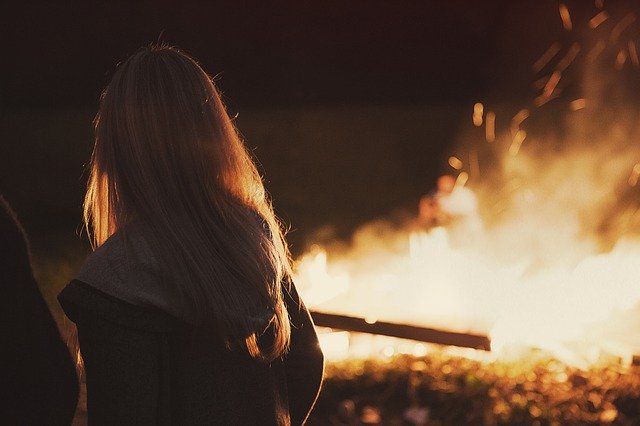Now is the time to brush up on the skills you need to survive (and even thrive) during a long-term emergency situation. Click here to see the full list of survival-themed presentations and e-Books you’ll get when you pay-what-you-want for the new Off-Grid Survival Toolkit.
_________________
Remember the prepper’s creed: If you didn’t personally test it, it doesn’t work!
Camping is a good time to test your prep items, as many of the things that you need for your emergency preparedness kits are either directly used in camping or are closely related.
Go Camping to Test Your Preps
Going camping is a lot like putting yourself into a controlled survival situation. The advantage, though, is that you are in control of the situation, can stop at any time, and can always go back to the comfort of your home if needed.
You May Also Enjoy:
This becomes especially important when camping with children.
Much of what you need to provide when you go camping is a direct parallel to being prepared. When you camp, you provide your own shelter, food, water, a way to cook, sleeping bags and pads, and so on.
In addition to testing your gear and learning how it works, you also get to test and improve your survival skills. Starting a fire, forecasting the weather, cooking over an open flame, and dealing with sanitation in a field environment are among many skills you’ll want to learn and master. Even learning to deal without electric lighting is something that you need to do when camping.
If you haven’t camped before, start by going to one of the established campsites that have toilets and running water. This makes it much easier to get used to being in the great outdoors.
Once you think you’re ready, try primitive camping, where you need to bring everything you need, including all of your water, your toilet, a way to keep your food cold, etc.
You May Also Enjoy:
“The 5-Minute Prepper #5: Buy Items Wisely”
Camping is also a great way to take your kids exploring and get them used to doing things the “old-fashioned” way.
If your children are young, teach them survival skills appropriate for their age, such as what to do when lost, fire safety, and how to avoid dangerous insects and animals.
As children get older, survival skills like starting a fire, making a shelter, and other field crafts can make them a more confident person as they grow up.
The Advantages of Backyard Camping When Testing Preps
You don’t have to leave your home to go camping. Camping at home in your backyard or in your living room can be a good way to ease younger children into the idea of camping in the wild. Most kids, though, would love the backyard adventure of sleeping the night in a tent.
Even for the novice camper, this is a good way to learn things like how to put together your new tent, figure out how the cookstove works, and test out the sleeping bag to make sure that it’s warm enough, without having to worry about having to sleep in the car if something goes wrong.
Also, as a beginning camper, you’ll need to start acquiring the necessary equipment. Tents, sleeping pads and bags, a cookstove, outdoor camping gear, and water containers are some of the things that you will need when camping. As an added benefit, all of this gear serves a dual purpose as your preparedness gear.
Whether driving to a campsite across the state or setting up in your backyard, camping is a great way to test your preps and build experience using your gear.
________________
This is an updated version of an article that was originally published on October 10, 2013.
Rob Hanus is the author of “The Preparedness Capability Checklist: A Planning and Evaluation Tool for Becoming More Self-Reliant,” an easy-to-read book that offers the absolute best method for intelligent and deliberate prepping. Rob is also host of the Preparedness Podcast.
The Grow Network is a participant in the Amazon Services LLC Associates Program, an affiliate program designed to provide a means for our team to earn fees for recommending our favorite products! We may earn a small commission, at no additional cost to you, should you purchase an item after clicking one of our links. Thanks for supporting TGN!
Marjory Wildcraft is the founder of The Grow Network, which is a community of people focused on modern self-sufficient living. She has been featured by National Geographic as an expert in off-grid living, she hosted the Mother Earth News Online Homesteading Summit, and she is listed in Who’s Who in America for having inspired hundreds of thousands of backyard gardens. Marjory was the focus of an article that won Reuter’s Food Sustainability Media Award, and she recently authored The Grow System: The Essential Guide to Modern Self-Sufficient Living—From Growing Food to Making Medicine.










COMMENTS(0)
I have to admit when I read the article about camping, the first thought that came to my mind, and brought a smile to me, was what my mother used to say when we would ask why we never went camping. Her response was that her idea of roughing it was when she had to stay in a motel that did not have central heat and air.
I’m now 66 and not in the greatest shape, and had a bit of an awakening the last couple of days here, even in S Texas. We had an ugly cold front come through and I had recently moved to a new rental home in which I had been told the central heat and air were electric. So yesterday morning when it was 34 outside and about 60 inside, and the fingers and toes were turning blue, I tried to turn on the heat. No heat. Called landlord and was told, sorry, I forgot to tell you the heat is gas. You need to call the gas company and have the gas turned on. Well, the gas company did not get the gas turned on until the cold front was history, and I made it through the cold front without losing any fingers or toes (people with Reynalds will know what I’m talking about), and it made me really aware of how vulnerable older people such as I are and would be with total grid loss. I have sleeping bags, cooking resources, just bought a nice little oven thingie to put over the propane stove for baking needs should that become necessary, water stored, food sources, was lucky my peppers, broccoli, cabbage and tomatoes didn’t get killed by a freeze, but do need to come up with some source of heat and some source for cooling in the summer, as I almost suffered heat stroke this summer when the AC crapped out.
What are some suggestions for methods for providing cooling and heating should normal resources become unavailable. Especially for those of us older people who are less able to tolerate extremes in temperature? I know about butane or propane heaters, but do not think they can be used in closed environments, such as houses. What else might there be? I do not have the money for a generator capable of providing power to run even a window unit. Plus in a survival situation that would be a knockoff that that would be a place to attack.
I think having a means to stay cool in the heat of S Texas summer is more important than keeping warm, you can always add more clothes. I’m not sure the area I live in would be safe to try to sleep outside during a period of unrest.
Hi Gena,
I have very much the same concerns as you do regarding elders (and small children) during intense heat or cold. I’ve been working on a project ‘off grid AC’ and here is a link to the video I’ve done on it. Note that I recently found an inexpensive pump for a 55 gallon drum (about $100 bucks including little solar panel to run it) which I will be testing out.
Here is the link to the video – and yes, I’ll post updates on the progress of the system.
I will also be working on ways to stay warm too. Here is one simple techniques that helps a lot.
I do not see the link?